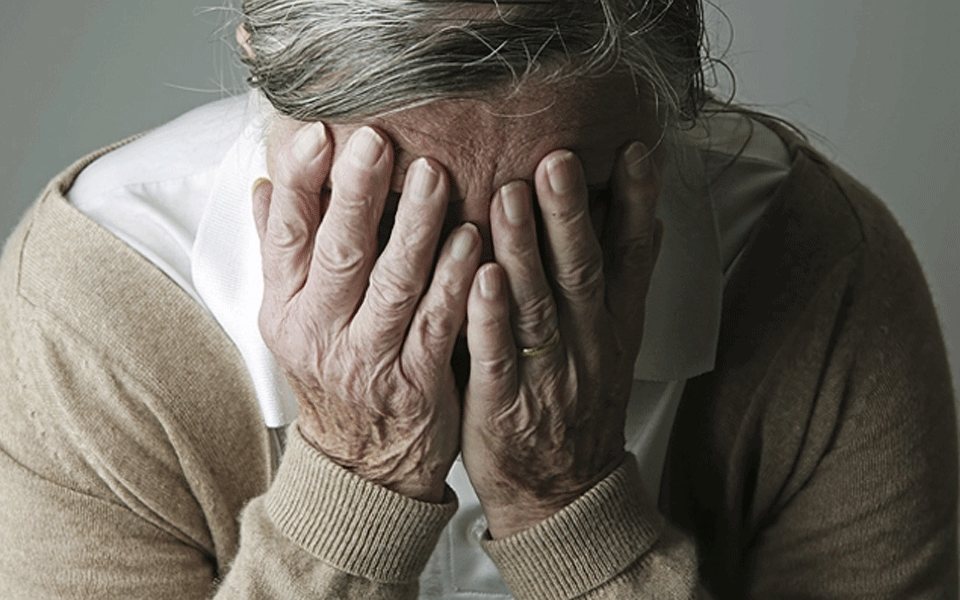On a working day in the outpatient department while I was a Neurology resident I met a mother and a son. To the world mother to child relationship is extremely special but, the mother was unable to recognize her son.
Her son elicited that his mother initially started forgetting where she kept her spectacles, and then missed on sentences. She gradually started forgetting familiar names and could not recognize familiar people. She lost track of her routine activities, gradually became bed ridden and was presently at a stage unable to identify her son.
Alzheimer’s disease, in my clinical practice has always made me feel how important it is to be healthy. Life is about making good memories, but what if the memory is lost gradually.
On November 3, 1906, a clinical psychiatrist and neuroanatomist, Alois Alzheimer, reported " A peculiar severe disease process of the cerebral cortex" to the 37th Meeting of South- West German psychiatrists in Tubingen. He described a 50 year old woman whom he had followed from her admission for paranoia, progressive sleep disturbance, memory impairment, aggression, and confusion, until her death 5 years later. His report noted distinctive plaques and neurofibrillary tangles in the brain histology. It excited little interest despite an enthusiastic response from Kraepelin, who promptly included "Alzheimer's Disease" in the third edition of his text psychiatrie in 1910. Alzheimer published three further cases in 1909 and a "plaque only" variant in 1911, which on re-examination of the original specimens in 1993 showed to be a different stage of the same process. Alzheimer died in 1915, aged 51, soon after gaining the chair of Psychiatry in Breslau, and long before his name became a household word.
World Alzheimer's Day is observed on September 21, every year to raise awareness and educate about Alzheimer's disease and Dementia. This day is observed to understand the importance of talking about dementia and demystify it. Alzheimer's is a progressive disease that causes brain cells to degenerate and die.
Alzheimer’s disease (AD) is a major public health problem and represents commonest form of dementia that affects many aspects of brain functions and contributes to 60–70% of dementia cases. Public awareness on Alzheimer’s disease is very important in identifying the disease early and minimizing progress of symptoms.
The following are the 10 Warning signs of Alzheimer’s according to the centers for disease control (CDC)
Memory often changes as people grow older. Some people notice changes in themselves before anyone else does. For other people, friends and family are the first to see changes in memory, behavior, or abilities. Memory loss that disrupts
daily life is not a typical part of aging. People with one or more of these 10 warning signs should see a doctor to find the cause. Early diagnosis gives them a chance to seek treatment and plan for the future.
- Memory loss that disrupts daily life: forgetting events, repeating yourself or relying on more aids to help you remember (like sticky notes or reminders).
- Challenges in planning or solving problems: having trouble paying bills or cooking recipes you have used for years.
- Difficulty completing familiar tasks at home, at work, or at leisure: having problems with cooking, driving places, using a cell phone, or shopping.
- Confusion with time or place: having trouble understanding an event that is happening later, or losing track of dates.
- Trouble understanding visual images and spatial relations: having more difficulty with balance or judging distance, tripping over things at home, or spilling or dropping things more often.
- New problems with words in speaking or writing: having trouble following or joining a conversation or struggling to find a word you are looking for (saying “that thing on your wrist that tells time” instead of “watch”).
- Misplacing things and losing the ability to retrace steps: placing car keys in the washer or dryer or not being able to retrace steps to find something.
- Decreased or poor judgment: being a victim of a scam, not managing money well, paying less attention to hygiene, or having trouble taking care of a pet.
- Withdrawal from work or social activities: not wanting to go to places of worship or other activities as you usually do, not being able to follow football games or keep up with what’s happening.
- Changes in mood and personality: getting easily upset in common situations or being fearful or suspicious.
As there is little understanding of the disease, the stigma associated with it is a global problem. Alzheimer’s disease is the most common form of dementia. It affects parts of the brain that controls memory, judgment and language function, which can interfere with the individual’s activities of daily living.
Some of the risk factors include blood pressure, smoking, sedentary life style. Thus, by modifying these risk factors, one can slow the progression of the illness.
Timely consultation to the doctor helps to delay the progression to some extent. It is also important to raise awareness about this disease among the family members, as at one point in the course of the illness, care giver responsibility becomes the most important aspect in the treatment.
There is a global need to raise awareness of this disease. One can help by individualizing the dementia care, providing care giver support, early diagnosis and destigmatisation. Together, we can reach out to the dementia patients as well as their family members and provide the necessary care and support. This year, on World Alzheimer’s Day, we must pledge to understand and comfort the dementia patients.

Dr. Salma Suhana
Assistant professor, Department of Neurology
Yenepoya Medical College and Hospital
Deralakatte, Mangalore.
Consultant Neurologist
Medi Nerv, Mangalore.
Let the Truth be known. If you read VB and like VB, please be a VB Supporter and Help us deliver the Truth to one and all.
Ottawa (PTI): Three Indian nationals have been arrested by Canadian police on an anti-extortion patrol and charged after bullets were fired at a home.
Harjot Singh (21), Taranveer Singh (19) and Dayajeet Singh Billing (21) face one count each of discharging a firearm, and all have been remanded in custody until Thursday, the Surrey Police Service (SPS) said in a statement on Monday.
The suspects were arrested by patrol officers after an early morning report of shots fired and a small fire outside a home in Surrey's Crescent Beach neighbourhood, the LakelandToday reported.
On February 1, 2026, the SPS members were patrolling in Surrey’s Crescent Beach neighbourhood when reports came in of shots being fired and a small fire outside a residence near Crescent Road and 132 Street.
The three accused were arrested by SPS officers a short time later, the statement said.
SPS’s Major Crime Section took over the investigation, and the three men have now been charged with Criminal Code offences, it said.
All three have been charged with one count each of discharging a firearm into a place contrary to section 244.2(1)(a) of the Criminal Code.
The investigation is ongoing, and additional charges may be forthcoming. All three have been remanded in custody until February 5, 2026.
The SPS has confirmed they are all foreign nationals and has engaged the Canada Border Services Agency, it said.
One of the suspects suffered injuries, including two black eyes, the media report said.
Surrey police Staff Sgt. Lindsey Houghton said on Monday that the suspect had refused to comply with instructions to get out of the ride-share vehicle and started to "actively resist."
"As we were trained, he was taken to the ground and safely handcuffed," said Houghton.
A second suspect with a black eye was also injured in the arrest after refusing to comply, Houghton said.
The arresting officers were part of Project Assurance, an initiative that patrols neighbourhoods that have been targeted by extortion violence.
Houghton said the Canada Border Services Agency (CBSA) is also involved because the men are foreign nationals, and the trio may face additional charges.
It's not clear if the men are in the country on tourist visas, a study permit, or a work permit, but Houghton said CBSA has started its own investigation into the men's status.
Surrey has seen a number of shootings at homes and businesses over the last several months, but there's been an escalation since the new year.





